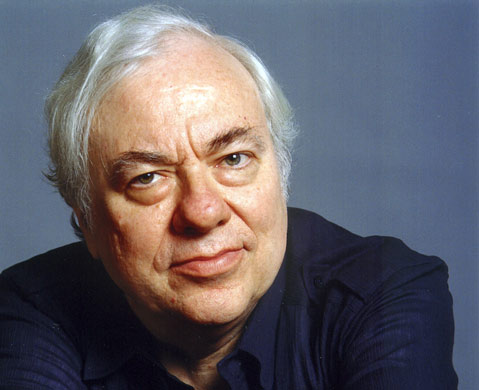
It was just 58 years ago that the world-renowned Boston Symphony Orchestra (BSO) last appeared in Santa Barbara. All right, 58 years is a long time, but not when you consider the lifespan of CAMA (Community Arts Music Association), the organization responsible for both that concert and the upcoming performance of the BSO on Thursday, December 8. Everything in good time might very well be the motto of both organizations, which are in their 93rd (CAMA) and 131st (BSO) seasons. In 1953, the Boston Symphony was directed by Charles Munch, a disciple of Serge Koussevitzky and a native of Strasbourg, Alsace-Lorraine, so it’s fitting that the conductor for this upcoming BSO “return” concert, Ludovic Morlot, should also hail from France and adhere to the same high standards, particularly in regard to the French repertoire that will be represented on this program by the “Roman Carnival” Overture, Op. 9, of Hector Berlioz, one of Munch’s signature pieces.
Pianist Richard Goode, an unparalleled interpreter of Mozart, will be joining Morlot and the orchestra for that composer’s Piano Concerto No. 25 in C, K. 503. The Concerto No. 25 is considered among Mozart’s greatest works in any genre, and it leaves plenty of room for a distinguished musician like Goode to improvise, as each of its three movements includes a cadenza, and Mozart’s original scores for these solos are lost. Goode tends to add a forceful, almost Beethoven-like touch to these moments, his confidence the product of an exemplary scholarly devotion to the manuscript evidence and the concerto’s place in Mozart’s oeuvre.
When I spoke with Boston Symphony’s managing director, Mark Volpe, by telephone last week, he sounded frazzled from the onset of another hectic season at Symphony Hall but also excited about both the upcoming tour of California and the prospects for his organization as it proceeds into the 21st century. “The key to what we do at the Boston Symphony is our blend of great tradition and innovation,” said Volpe. “Boston has a historic connection to education and culture that is a rich part of our heritage, but on the other hand, the current partnership we share with the Massachusetts Institute of Technology, which is one of those historic institutions, is all about technology and the future. We have the most visited Web site in classical music, and we intend to stay in the lead with our digital presence going forward.” Volpe was quick to put even this future-oriented observation into a more historical context, adding that “of course, the thing with music is that the venue, whatever that might be, has always shaped the performance. That’s why in a lot of ways, the core identity of the Boston Symphony will always be bound up with Symphony Hall, and what a great building that is, and with Tanglewood, and what an important location that has been for music history.”
In response to a question about the value of touring, Volpe was candid. “Touring is not as easy for us as it is for some other orchestras, because with Tanglewood, the Symphony Hall season, and the Boston Pops all under the same direction, we really don’t have an off-season at home, so there’s no natural time to go on the road.” That said, Volpe acknowledged the pleasures and benefits of the upcoming trip to California, which includes concerts in Los Angeles, Palm Desert, and San Francisco in addition to Thursday’s appearance at the Granada. “There’s a lot to be said for hearing the same repertoire in a variety of different halls and for the experience of touring as a way of becoming closer as a unit — more of a musical family.” This concert will be one that the entire orchestra looks forward to, Volpe assured, saying, “Are you kidding? Do you know what the weather in Boston is like in December? We can’t wait to see Santa Barbara!”
4•1•1
CAMA presents the Boston Symphony Orchestra at the Granada Theatre (1214 State St.) on Thursday, December 8, at 8 p.m. For tickets and information, call 899-2222 or visit camasb.org.

 on Google
on Google 

